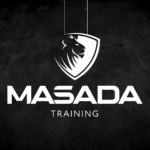Not all self-defense, firearms/tactical, or self-protection classes, and more so instructors, are created equal. This has become very apparent with the changing laws in regard to concealed carry nationally over the past few months. The permitted carry in most states generated an immense spike in demand for training (oftentimes for compliance with regulatory requirements), which in turn translated to many enthusiasts who decided to jump on the bandwagon and become certified instructors. Most did so because there was money to be made, and the public truly doesn’t know any better when choosing the right instructor for them.
When an instructor’s motivation to teach stems from pure profit, it is safe to assume that their teaching and real-life application skills will not be up to par compared to those who consider themselves to be educators with a mission of relaying information to students to better them.
This has been an issue for generations regarding any martial arts school, especially those that proclaim to teach a realistic self-defense system. By nature of teaching a skill that can, or even sets as a goal to cause harm, the instructor has to be an expert not only in the skills he teaches but also in legal and liability concerns and proper safety principles to assure a safe training environment, educational (youth and adult) principles for the best transfer of information, and so much more. This problem is obviously exaggerated when dealing with firearms. If the instructor does not employ proper educational methodologies, coupled with a true understanding of what happens during shooting, then they are likely setting the student up for failure, which in this case may result in death.
So how does one know how to choose the right school and/or instructor, be it for self-defense or firearms training? The answer lies in education. We live in a time where accessing information is as simple as pressing a few keys on a keyboard or asking a virtual artificial intelligence voice assistant such as Siri or Alexa. It is the prospective student’s responsibility to do the research and find out two things: the instructor’s specific knowledge of the information taught and his ability to teach said information. There are three routes the student should take to get the answers:
- To find out about the instructor’s knowledge and expertise, you should research. His background, education level, practical relevant experience, etc. for example, if you want to learn self-defense, then you should look into the instructor’s affiliation with various martial arts organizations, competition attendance and ranking, and specific schools attended, such as instructor certifications, seminars, and advance education in the specific skillset. If you are looking for a firearms instructor, seek beyond just someone who enjoys going to the range, but has this instructor been in a profession where firearms training is a comprehensive part of it (from law enforcement to professional competitive shooters)? Do they possess legal knowledge? And if possible, have they ever used the tool in a true manner, meaning: self-defense?!
- If you want to know how good of instructors they are and how well they transfer the information, you should ask their past students or look into their students’ accomplishments. Did their students win competitions? Did they ever have to use a skill in self-defense, and what was the outcome? Did they stick around for a while (students who left may not have liked the instructor’s style. longevity typically reflects the ability of the student to relate to the instructor)? Etc.
- Last but certainly not least, you should attend a class. Check the instructor out for yourself. Is his style of teaching good for you? Does he come across as a professional? Does he have the patience to answer your questions, and does he answer those correctly? Does he have the integrity to admit when he doesn’t (which is not a sign of a poor instructor, but on the contrary, shows humility and the ability for the instructor to provide correct and honest answers)?
At Masada Tactical, we have taught self-defense classes since 2003 and firearms classes since they first became a requirement in 2013. Our instructors all have real-life experience; not only do we all bring military, police, or high-risk security operational experience, but we are educators. We know how to design a curriculum that fits adult or youth learning and will keep students engaged. Our self-defense students typically stay with us for years, have won competitions, and, more importantly, have documented the need to utilize the skills to preserve their own safety successfully and that of their loved ones. Our firearms and tactical students leave not just with a certificate of completion but with true skills and an understanding of the importance and responsibility that comes with firearm ownership.
If you are looking to get into self-defense training, or get your HQL or CCW license, check us out. Give us a call so we can answer any questions or concerns you may have. And learn with the best instructors in Maryland.



